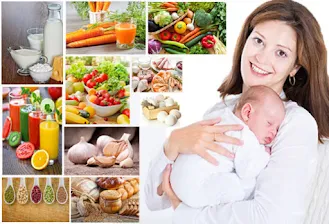Foods To Avoid During Breastfeeding
In fact, there is no list of foods that people who are breastfeeding should avoid altogether. Instead, they should eat food that is healthful and pay attention to cues from their body.
Breast milk comes from nutrients that pass into the blood. Many of the potentially dangerous ingredients that could cross the placenta during pregnancy do not get to the breastfeeding baby.
FRUITS TO AVOID DURING BREASTFEEDING:
Common fruits to avoid while breastfeeding
Citrus Fruits like:
Lime
Kiwi fruits
Tangerine
Strawberries
Pineapples
Oranges
Grapes
Cherries
Prunes
READ ALSO: FOODS THAT CAN CAUSE MISCARRIAGE IN EARLY PREGNANCY
Citrus fruits add a sharp strong flavor to your breast milk. Some babies might object to the taste of it, and get fussy while consuming it. Other babies may vomit. Sometimes, your baby may also develop diaper rashes as a result of the citrus content in breast milk. Citrus fruits contain many acidic compounds and can lead to irritation of the gastrointestinal tract (GI) in children.
It is quite common for newborn babies to suffer from gas due to their newly developing digestive system.
Also avoid the following foods which can also lead to gastrointestinal problems and may also trigger allergies in babies:
Caffeine
Chocolate
Alcohol
Eggs
Soy
Fish
Peanuts
Garlic
Wheat
FRUITS TO EAT DURING BREASTFEEDING:
Fruits are a rich source of many nutrients. They may also help relieve constipation, which some people experience after giving birth. Aim for about 2 cups of fruit per day, which should include a wide variety of different fruits.
The United States Department of Agriculture (USDA) recommend the following fruits as these are all excellent sources of potassium, and some also contain vitamin A:
- cantaloupe
- honeydew melon
- bananas
- mangoes
- apricots
- prunes
- red or pink grapefruit
Vegetables
People who are exclusively breastfeeding should aim to eat 3 cups of vegetables a day. Those who are combining breastfeeding with formula-feeding should eat 2.5 cups of vegetables each day.
Vegetables are rich in vitamins and antioxidants. Consuming a sufficient quantity will help the body to replenish the nutrients it needs to make milk.
The USDA recommend the following vegetables due to their potassium and vitamin A content:
- spinach
- cooked greens, such as kale and collards
- carrots
- sweet potatoes
- pumpkin
- tomatoes
- red sweet peppers
Grains
Grains offer vital nutrients, especially whole grains, such as brown rice and whole-wheat bread. People should aim to eat 8 ounces (oz) a day if they are exclusively breastfeeding, or 6 oz if they are also formula-feeding.
Some grains, such as quinoa, are also high in protein, which is an essential nutrient to eat when breastfeeding.
Fortified cereals provide added nutrients and are also a good option. It is best to stick to whole-grain cereals that do not contain added sugar.
Protein
When breastfeeding, the body requires an extra 25 grams (g) of protein per day and at least 65 g per day in total.
Experts recommend including some protein with every meal.
The USDA recommend the following sources of protein:
- beans and peas
- nuts and seeds
Seafood is rich in omega-3 fatty acids, which can support healthy brain development in the baby. Salmon, sardines, and trout are excellent choices because they are high in omega-3s but low in mercury.
People who are breastfeeding should avoid other fish, such as albacore tuna, swordfish, shark, and king mackerel, which are high in mercury. Other forms of tuna are safe to eat.
Dairy
Both pregnancy and breastfeeding can leach calcium from the bones. This puts people at risk of osteoporosis if they do not get enough calcium and vitamin D. Dairy products, such as cheese and milk, are excellent sources of calcium, and many have added vitamin D.
People who are breastfeeding should aim for a minimum of 3 cups of dairy products each day. The following are good sources of vitamin D and calcium:
- milk
- yogurt
- natural cheese











